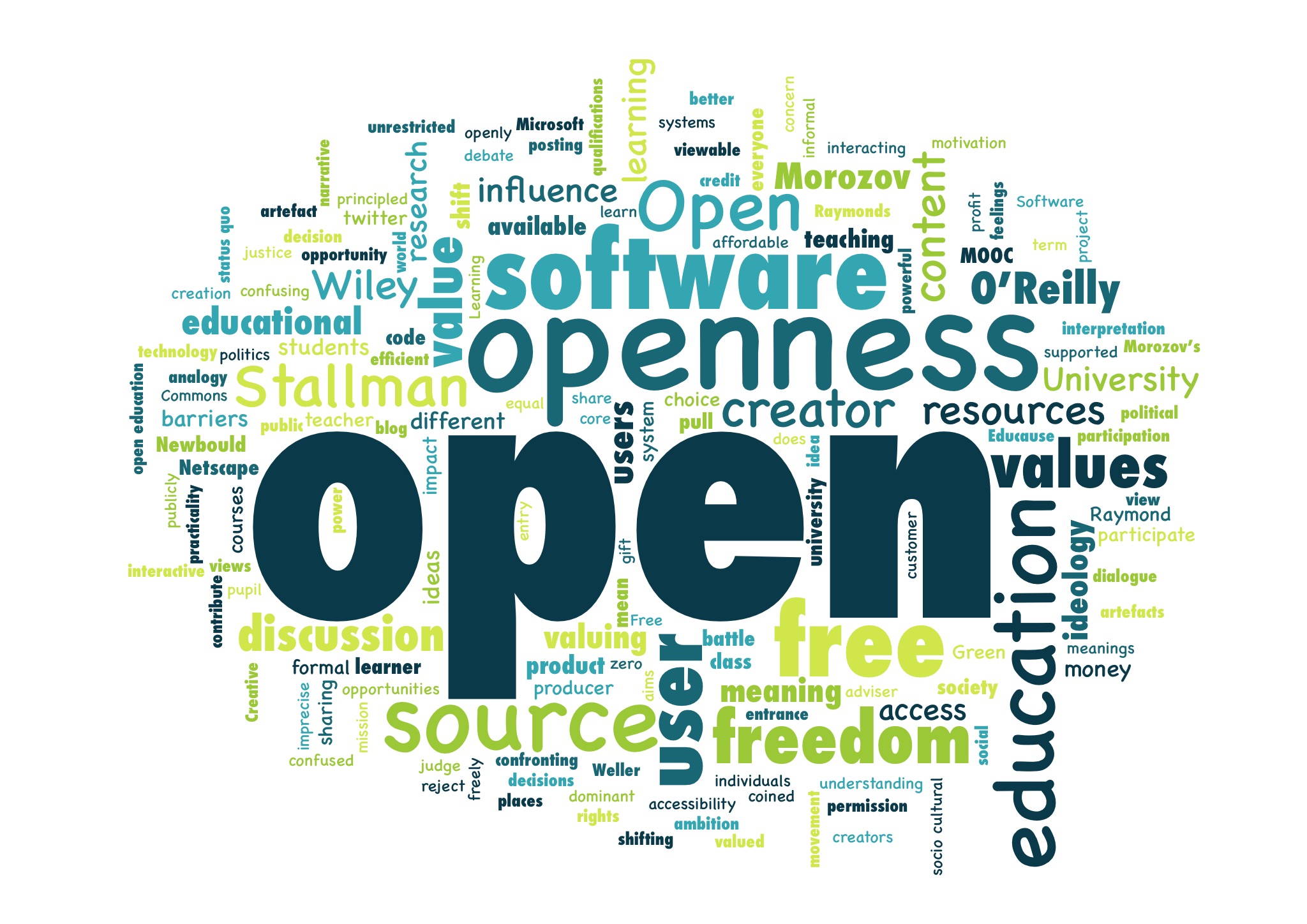My decision to read Cormier’s article was, I admit, due to it’s title “What do you mean…open?”. The very same question was rattling around in my brain and in my post-TMA stupor I couldn’t formulate and answer. As I read Cormier I realised that this isn’t a question that lends itself to easy answers.
It was only when I made a word cloud from the my notes on Cormier that something jumped out at me….

…. value versus values
Cormier points out that open means more than free (and by free I mean no cost here). Quoting Newbould, he describes four meanings to open – accessibility, opportunity, transparency and entry. He argues that it is the values that motivate practitioners and learners that determine the orientation to openness.
When we are talking about values, nothing exemplifies this more than Wiley’s TED talk "Open education and the future". It’s clear that he values the generosity of openness. Although he talks about giving without giving away, the power still lies with the person who has something to share. They can decide to withhold it or to share.
I think openness in education is moving society from domestication to liberation (Wellington and Austin, 1996). Learning which is domesticating supports the continuation of the dominant culture, supported by restrictive policy and punitive laws. It seeks to eliminate uncertainty and resist change. Creative commons has allows us to overcome this legislative restraint, enabling us to realise the opportunities for sharing afforded by new technology (Green, 2012). Education which liberates embraces ambiguity and has the potential to effect individual or cultural transformation (Hunt, 2009). For example, The Open Access movement has brought a diverse range of people together with the shared values of securing unrestricted access to online research for the benefit of society (Creative Commons, 2011). As a new social movement, it aims to effect socio-cultural change rather than political or economic action (Buechler, 1995).
[...I could digress here and discuss free versus freedom, but perhaps that’s for another day.....]
I agree with Wiley when he says “education is inherently an enterprise of openness”, a perspective which, I think, fits most comfortably with my own values. Getting something without paying is nice. Giving something for free is better.
References
Buechler SM. (1995) ‘New Social Movement Theories’ The Sociological Quarterly vol 36, no 3, pp 441-464.
Creative Commons. (2011) Creative Commons and Open Access [Online]. Available at https://wiki.creativecommons.org/wiki/Creative_Commons_and_Open_Access (accessed 25 March 2016).
Green C. (2012) ‘2012 Paris OER Declaration’ Creative Commons 29 June [Blog]. Available at http://creativecommons.org/weblog/entry/33089 (accessed 25 March 2016).
Hunt, C. (2009) Seeking Integration: Spirituality in the Context of Lifelong Learning and Professional Reflective Practice in R.L.Lawrence (Ed)Proceedings of the 50th Annual AERC Conference: Honoring our Past, Embracing our Future. National Louis University, Chicago, pp. 155-160.
Wellington, B. and Austin, P. (1996) ‘Orientations to reflective practice’. Educational Research, vol. 38, no.3, pp. 307-16.